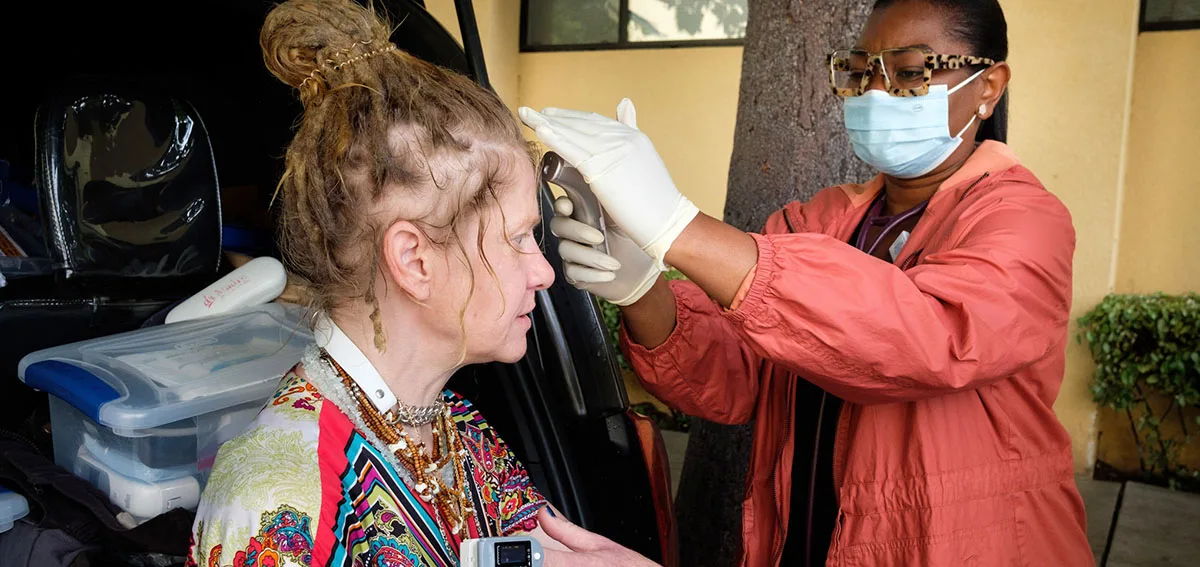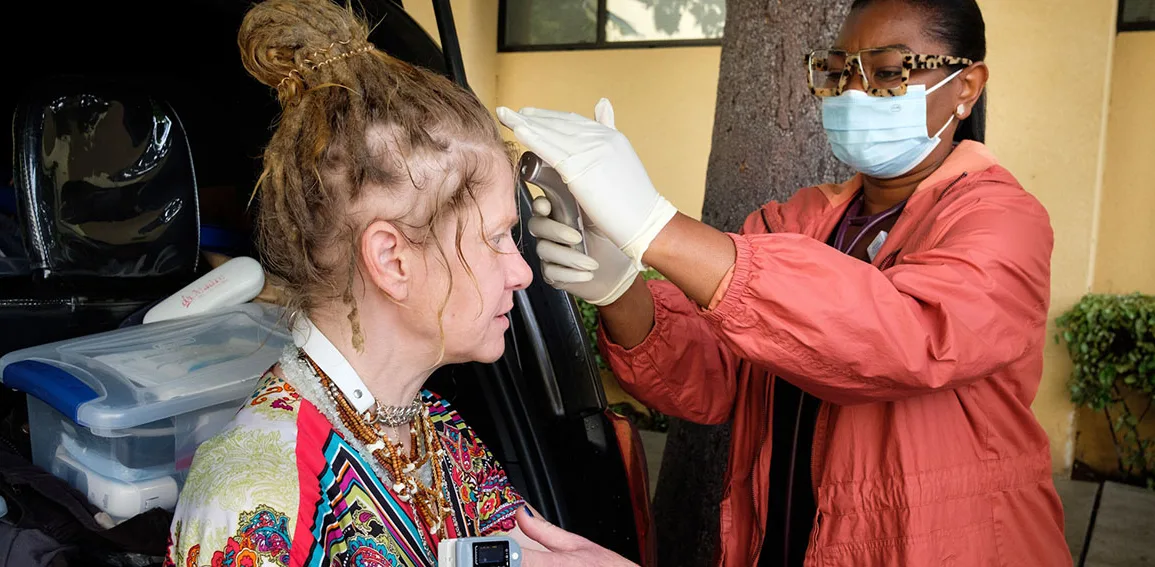
While the health care system cannot by itself solve homelessness, it has a crucial role to play in providing access to services critical to the welfare of people experiencing homelessness. Across the state, organizations and communities help people exit homelessness every day. But the story behind each success is often a long journey through layers of administrative barriers and siloed programs. Navigating access to meaningful care by people experiencing homelessness, who are already facing trauma and struggles to survive, requires a person-centered approach to care.
California’s Medicaid program, Medi-Cal, is undergoing an ambitious transformation known as CalAIM (California Advancing and Innovating Medi-Cal). A key focus of this transformation is removing barriers to care for populations who struggle to access services, including people experiencing homelessness. A critical goal of CalAIM is a more person-centered approach to publicly funded health care.
This paper rests on a foundation of extensive research and examines the successes, challenges, and opportunities in providing person-centered care to people experiencing homelessness. In Part 1, the authors describe in detail how homelessness undermines a person’s health. When people live outdoors or without reliable shelter, existing health issues are made worse, and people develop new ones. Californians experiencing homelessness die in large numbers from causes directly related to their lack of housing. Homelessness cuts lives short: People experiencing homelessness die on average 20 to 30 years younger than their housed counterparts. Homelessness also exacerbates existing racial health disparities, with Black and American Indian / Alaska Native people being significantly more likely to experience homelessness. Decades of racism in housing and institutional policies contribute to these disparities, leading to untreated chronic health conditions and other behavioral and physical health problems that contribute to chronic patterns of homelessness and early mortality.
The primary driver of homelessness is a lack of affordable housing. Part 2 describes opportunities in CalAIM, in the Providing Access and Transforming Health (PATH) initiative, and in the Home and Community-Based Services Spending Plan to fund housing support services that connect people to housing and help keep people stably housed. This section also includes explanations of CalAIM’s Enhanced Care Management benefit (PDF) and Community Supports (PDF), seven of which specifically focus on people experiencing homelessness.
Despite the promise of CalAIM and related programs, CalAIM’s impact has been limited to date. Part 3 describes the challenges providers and managed care plans face in implementing CalAIM and the provision of housing support services. Health care and social service providers offering services under CalAIM must navigate differing reimbursement rates — which may not be enough — and differing requirements set by each managed care plan, even among plans operating in the same county. Managed care plans may not know how best to identify and reach people experiencing homelessness, and to connect people to housing and housing support services. Meanwhile, people who are unhoused must still find and access the care and services they need by navigating complex systems of care and fragmented provider networks.
Recommendations
The substantial research cited in this report highlights the need for a well-designed Med-Cal benefit for housing support services that would make the integration of housing and support services funding possible and sustainable.
The report offers these seven recommendations California policymakers can take now to implement Medi-Cal housing supports and achieve person-centered care for people experiencing homelessness:
- Seek federal approval by the end of 2024 for a housing support services Medi-Cal benefit to provide a comprehensive range of services to all Medi-Cal members experiencing homelessness.
- Set provider rates that adequately support housing-related services, covering the full costs of evidence-based programs.
- Fund evidence-based homeless outreach and engagement strategies through sustainable funding sources.
- Build the capacity of community-based organizations to implement housing-related services.
- Develop a plan for integrating inter-agency health and housing policies, aligning funding models and resources effectively.
- Establish equity benchmarks to address health disparities and reset eligibility criteria based on need.
- Create a process for referrals that begins with the homeless response system, allowing for smoother access to housing support services.
These recommendations can help advance our health care system toward evidence-based, comprehensive, person-centered care that can help people with the most complex needs find and access housing, obtain needed care, stabilize, and thrive.
The full report is available in Document Downloads below.


